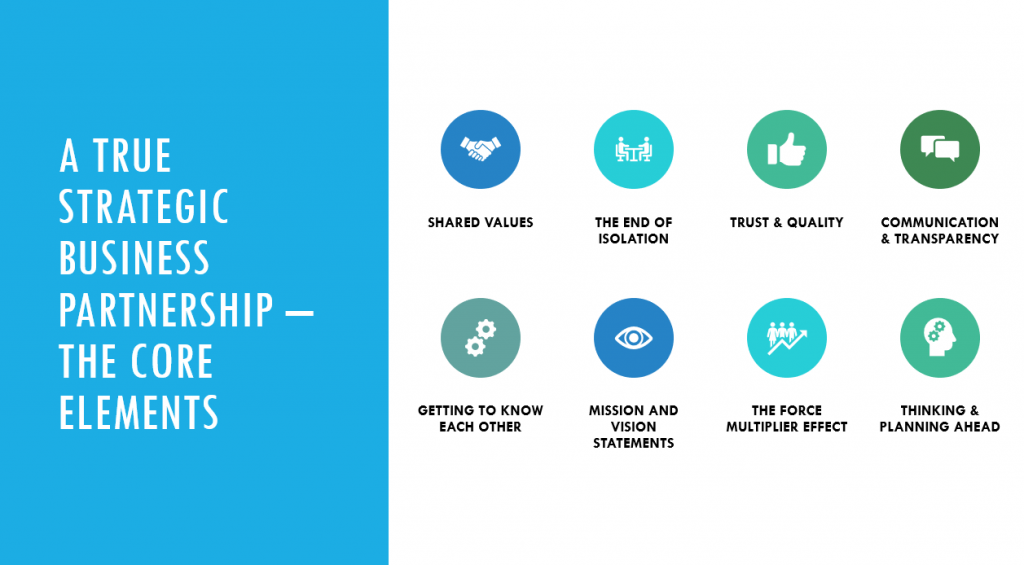Strategic Business Partnerships: The Benefits of Working Together

Your business may compete head-to-head with a number of other companies, but this doesn’t mean you have to treat ALL other businesses as if they are the competition. In fact, there are real benefits in creating strategic alliances with other like-minded organisations.
When you look at the wider marketplace, you’ll see that there are businesses out there that may well compliment your offering. And by working together (rather than against each other) it’s possible to become valued strategic partners, collaborating to serve your joint customers, improve brand awareness and, ultimately, expand your target market.
If this sounds like a positive strategy, now’s the time to do your homework and start hunting down the best strategic partners for your business.
Working to serve a shared customer base
Strategic partnerships are all about finding the common ground between you and your intended partner – and this means finding the best ways to combine your efforts. If you can share the same customer audience, and create a complimentary way of meeting their needs, that creates a broader, more connected way of growing both companies.
Find a company that’s interested in forming a strategic alliance
1. Find partners in complementary sectors
If you’re an accounting firm, like us, it makes sense to partner with solicitors, lawyers and other professional services providers who can help your clients. If you're a maker of shoes it makes sense to partner with a clothing manufacturer that shares your same sense of style and purpose. The key here is to find a shared audience or customer need, and to create some real synergy between your two businesses.
2. Take part in business networking and events
To get a wider understanding of your local, or industry specific, business network, it’s worth taking part in plenty of online and offline business events. You’ll meet new people, hear about new brands and will find it easier to find your ideal strategic partner. The wider your business network, the more choices you have for an alliance.
3. Look at crossover between your target audiences
Once you’ve found a potential strategic partner, it’s important to take a detailed look at the crossover between your partner’s audience and your audience. Do they shop through the same channels? Do they fit a certain age group or social demographic? Are these customers local, or are they part of a national or global online customer base? How large is their database?
4. Cross-reference your customer databases
By sharing and comparing your client relationship management (CRM) data, you can cross-reference both sets of customer data and see where there’s overlap, or where you may already share some of the same customers. The better you understand each other’s customers, the more likely it is that you’ll find some common ground for shared marketing and promotion.
5. Run joint events and promotions
Presenting joint webinars with your strategic partner, or running joint promotions. By finding a common theme, you bring both audiences together and reinforce the alliance between your two brands. You also reduce the expenditure by sharing the costs and reach a wider audience.
6. Combine your R&D efforts
To move your alliance forward, you can also try combining your research and development (R&D) activity, to find new products, new services and new ways of keeping your joint customers happy. By sharing the time, costs and effort of developing new offerings, both companies will benefit – and you keep your businesses at the cutting edge of their respective sectors or specialisms.


